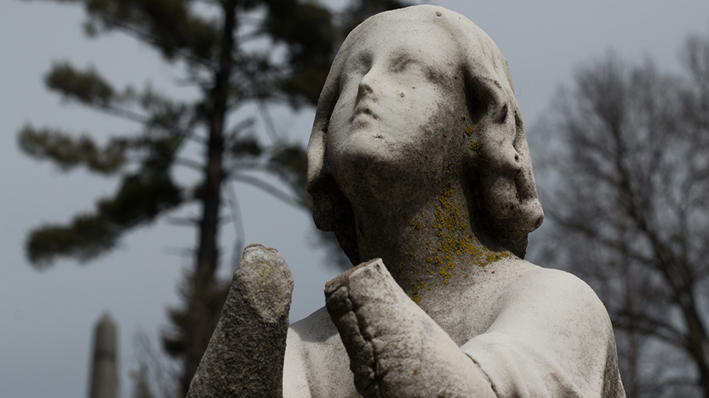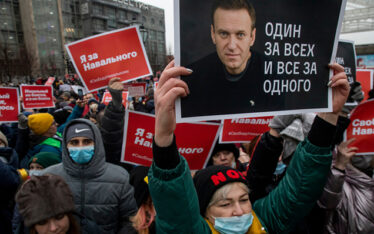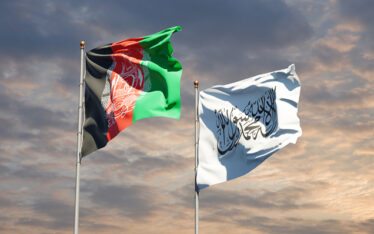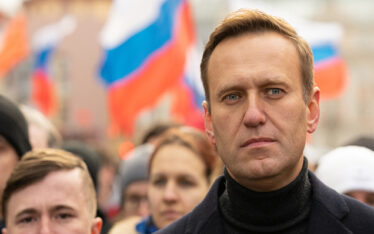
revdarth42/shutterstock.com
What is A Prayer for Owen Meany? It would be easier to say what it isn’t. First and most plainly, it’s a book by John Irving, published in 1989.
On a personal level, it’s my favorite novel ever and the last book to make me cry. It’s also a historical document, a spiritual guide, a perfect drama, a portrait of my country. I would call it the Great American Novel. This is probably an unpopular opinion in literary circles, but it’s true, at least, for me.
THE FOCUS
A Prayer for Owen Meany is packed with characters, but the book really centers around two boys: John Wheelwright and Owen Meany. John narrates from the then-present-day, the late 1980s, reflecting on his childhood alongside the titular Owen Meany in the late 1950s and 1960s.
Owen is a tiny boy with a fucked-up voice, the product of dust from a nearby granite quarry. He’s also intelligent, moral, and principled. He lambasts his school’s hypocrisy in newspaper articles. He writes all of John’s essays for him. He engages seriously in his theology classes. And besides all this, Owen is also the instrument of God.
PREMONITION OF DEATH
Owen receives premonitions of his death throughout the book, the day it will happen, and how he will die. He will become a martyr, sacrificing himself to save a group of children. Conveniently for Owen, America enters the Vietnam War.
Owen never ends up going to Vietnam due to his height. But he works in America for the military, accompanying bodies of soldiers to their families. And in Arizona one day, he gets his chance. On the day he had predicted that God had revealed to him, Owen shields a group of children from a grenade thrown by a disaffected terrorist– his arms are blown off, he dies.
MAYBE A CARICATURE
This sounds corny as I type it. And I’ll admit– like all great American cultural products, Owen Meany is too much. It’s excessive, over-the-top, dramatic. The characters are caricatures at times, too crazy and out-there to find in real life.
I heard the bellowing notes of TV soap when I was reading. The ending was dramatic, predicted, foreseeable. And I still cried, and the book still haunts me.
I’m not religious
Why did this book move me so much? I’m not religious. At all. I’ve been to church twice, and I’ve never been so lucky to commune with God. I’m not from New Hampshire. I’ve never had to deal with the moral dilemma of the draft, of my responsibility in an unjust war.
The book is relatable not in the circumstances or people it describes, but in its representation of the personal quest for goodness. Yes, this quest is dramatized and exaggerated.
why I buy in
Maybe I buy into this exaggeration because I’m American and this is the entertainment I’m used to. Maybe because I was a teenager when I read it, the moral high stakes appealed to my sense of drama and angst. Whatever it is, I buy into it, and I think it makes the book so great and so American. Irving, in his excess, mimics the highs and lows of the nation.
All of America’s sins are put forth– the blind faith, the violence, the mean and arbitrary authority– in John and Owen’s lives, as well as the broader national context. The ugly is very ugly. And this makes Owen’s final sacrifice all-the-more beautiful– it creates that intense contrast, the chiaroscuro. I’m a complete sucker for Owen, his unwavering goodness, his faith, his ultimate sacrifice.
IRVING CHEATS US
This is where the problem comes. John Irving cheats. Owen is an impossible character. People are not like Owen, this brilliant, miraculous man who overcomes the limitations of his body and his circumstance to do the most good. What’s more, people do not get premonitions from God on a regular basis. We’re a lot more like John, the narrator.
John is outside the major action: he does not go to Vietnam; he does not protest the war. Hell, he doesn’t even write his own papers in school. Owen does that for him. Called upon in the middle of this national crisis of the Vietnam War, John does not even form an opinion. It’s all he can do to stay out of the war.
IDENTIFYING WITH WHOM
To avoid the draft, Owen cuts off John’s finger. Again, it’s not even John’s own choices, ideas, or willpower that saves him. Owen is the one who comes up with the plan, does the act, saves John. John is the ultimate observer.
What scared me so much about the book was seeing myself reflected in John. Scared, unopinionated, secondary. What I wanted to be was Owen. I wanted a mission, a deadline, a clear-cut opportunity to do something unassailably good.
a double bind
The voice of 1980s narrator John haunted me. He is left bitterly hanging on to America, chronicling the evil committed in a world that is constantly forgetting it and moving on. Unable to do anything. Unable to do good.
So, Irving really left me in a double bind– he gave me a hero and made that hero completely inaccessible. I can’t be Owen because Owen’s a miracle. Does that mean I have to be John?
practice… why?
I thought a long time about how to create a loophole for myself. And I found it in a paradox that Irving –intentionally or not, I don’t know– leaves in the book.
For years, Owen Meany practices The Shot, the maneuver that allows him to grab the grenade and shield the children from its blast. Yes– for years, he practices, even though he knows he is fated to die a certain way. His purpose has been revealed to him by God. So, if Owen is predetermined to martyr himself, why does he have to practice?
reconciling
Maybe Irving wants to reconcile divine destiny with free will. Owen knows what God intends for him– but he has to work for it. He has to believe, despite the ministers and classmates who do not believe alongside him, that he is destined for something good. And he has to make this destiny a reality through hard work. Again, very American– individualistic, work ethic, very Protestant.
I can’t be Owen. I can’t know my destiny. But I can hold on to a faith that goodness exists, and that I can live it out every day. I can accept that this goodness comes at the cost of personal sacrifice- without, hopefully, having to blow off my arms.
recommending
Back after I first read this book, I wrote a letter to a friend convincing him to read it. Here’s what I said:
“I have to commit myself to a belief in goodness– that people deserve help; that human life is not inconsequential; that individuals have power over their conditions. Maybe none of that is true, and maybe I’m lying to myself in order to evade the consequences of reality. That’s a lie that I’m willing to commit to.
“In my opinion, that’s what faith is –a commitment to your lie because you can’t live without it. In that sense, God is in me– it’s the constant thought running through me that these things I choose to believe in are important. That they guide my life. That I have to work to uphold them through my actions.”
POTENTIAL SIN
This is some cobbled theology, and I don’t know if it would fly in any kind of church. But it’s a good reminder today, when it seems like there’s no truth, like no way to be good, and everything I consume –media, food, clothing– is fraught with potential sin.
Thinking of Owen Meany reminds me that goodness is synonymous with work and sacrifice. That there are ways to be good even in a landscape of evil and violence.
A PARADOX
Owen Meany is a very American book. It somehow joins faith and destiny to work ethic and individualism. At times, it’s very over-the-top, it’s exaggerated and full of drama. It entertains miracles. It creates a savior.
All of this is paradoxical. And still, this book inspires faith in me. It is a ridiculous, unlikely, impossible compass. But why not? Owen gets his motivation from God; I get my motivation from Owen. So it goes. If it makes me better, if it lets me have a little faith, I’ll take it.
About the Article
A literary review of a thirty-something year-old work that holds up as if written today.



